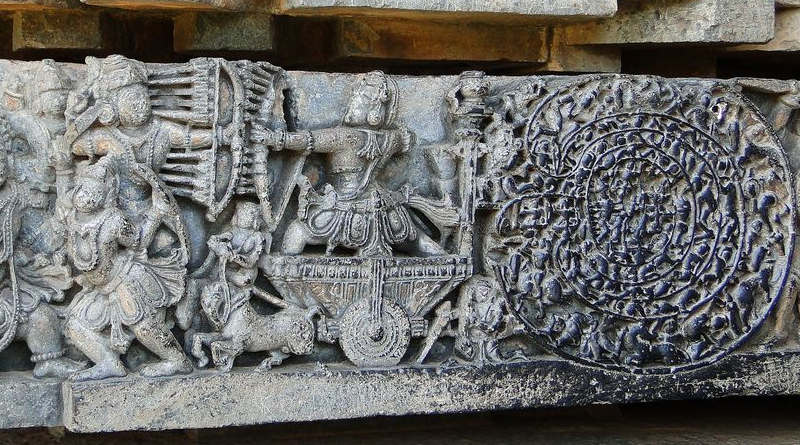The BJP government should uphold its own pledge to end ‘tax terrorism’
Both Indian businessmen and foreign investors have long complained of India’s ‘tax terrorism’. For Indian business, this refers to tax raids. For foreigners, it means unfair assessments and constant changes in tax laws, sometimes to claw back billions of dollars.
In the now-famous case, an international arbitration tribunal in The Hague recently ruled that India’s imposition of a huge tax liability of ₹22,100 crore on Vodafone, including interest and penalties, breached the investment treaty between India and the Netherlands. It also directed India to pay $5.47 million to the company for its legal costs.
Conflicting Signals
India’s reaction? ‘The government will be studying the award and all its aspects carefully in consultation with our counsels,’ India’s finance ministry said in a statement, adding that it will consider all options, including legal remedies.
This goes completely contrary to the assurances that former finance minister Arun Jaitley gave when BJP came to power in 2014. The BJP election manifesto of the time had accused Congress of ‘tax terrorism’ in the Vodafone and other cases. The manifesto — and Jaitley personally — promised to end this tax terrorism. Instead, the government says it is once again considering the endless litigation that Jaitley promised to end.
Vodafone came into India by buying majority control of the telecom company Hutchison Essar from a Hong Kong tycoon, Li Ka-shing, who owned this stock through an offshore vehicle in the Cayman Islands. He made a huge capital on this transaction. Indian tax authorities claimed that capital gains tax was payable since the assets were in India even if the transaction was offshore. They did not go after Li Ka-shing. Instead, they said Vodafone should have deducted India’s prescribed withholding tax on such transactions and given that to India.
Vodafone protested that this was contrary to law and went to the courts. After years of litigation, the Supreme Court upheld Vodafone’s claim in 2012 and decreed that the company was not subject to withholding tax on such a transaction.
In most countries, that would have ended the matter, but not in India. BJP lambasted the Congress-led government for tax harassment. But finance minister Pranab Mukherjee had other ideas. He introduced new legislation, making such transactions taxable in India with retrospective effect from 1962. That was a case of ‘Heads I win, tails you lose’. It dealt a serious blow to India’s reputation as a country that was serious in attracting foreign investment, or being fair to foreign investors. Vodafone opted for international arbitration to press its case that this retrospective legislation violated bilateral tax treaties.
BJP was scathing in its criticism. It conjured the phrase ‘tax terrorism’ to describe the actions of the Congress-led government. Here was Vodafone that was not guilty of violating any law, but the government was going after Vodafone instead of going against the real beneficiary of the deal, Li Ka-shing, who sat happily in Hong Kong beyond the Indian government’s reach. ‘What sort of justice was this?’ asked Jaitley.
Policy on the Line
Then BJP came to power in 2014. Jaitley became finance minister and was immediately asked what he was going to do about tax terrorism. Would he drop the Vodafone case? Alas, no. He took the position that retrospective changes in the tax law were bad policy and that BJP would not use this retrospective law. But, he said, the case against Vodafone was already in the courts, an unwanted but inescapable inheritance from the Congress government. He could not interfere in a case that had already gone so far, he said, and so BJP would allow this case to go to its legal conclusion.
That has now happened. Since the case has gone in Vodafone’s favour, that should be the end of the matter. Instead, the finance ministry under Jaitley’s successor, Nirmala Sitharaman, says it is considering the judgment and will consider further legal action. That will be a clear violation of Jaitley’s promise. It will dent India’s reputation even more than is already the case.
Of course, it can be argued that Jaitley violated his own pledge in the case of Cairn India, a major oil producer. The British owner, Cairn Energy, had sold Cairn India to Vedanta in 2010-11. Here again, the Congress-led UPA government in January 2014 demanded information on Cairn’s internal reorganisation in 2006 along with a tax notice and attached 10% of Cairn’s shares.
In 2015, with Jaitley at the helm, GoI claimed Cairn owed ₹10,027 crore along with interest since 2006 and penalties. Apart from the seized shares, the government also seized $159.8 million of dividends due to the British company. Cairn Energy went for international arbitration.
A decision on the Cairn case is expected soon. It may well go against the government, as in the Vodafone case. Will the government continue contesting such awards forever? Or will it finally understand that ‘tax terrorism’ does not mean the sort of terrorism it combats in Kashmir, but a refusal to abide by international treaties and pledges made by BJP itself ?


